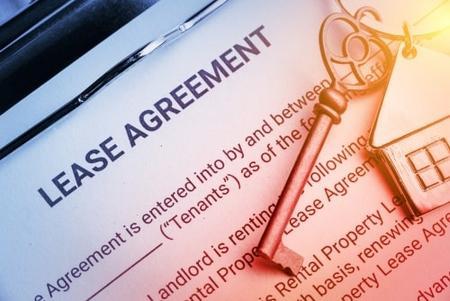Can Landlords Make Lease Modifications for Tenants Affected by COVID-19?
 The COVID-19 pandemic has had a huge impact on people throughout the United States, and many landlords have struggled to determine how they can continue to earn profit through leasing property to residential or commercial tenants. While some tenants have experienced financial issues that have affected their ability to make rent payments, landlords were prohibited from performing evictions for much of 2020 and 2021. The eviction moratorium in Illinois has ended, and landlords may once again be able to use the legal tools at their disposal to address the non-payment of rent by tenants. However, there are some cases where landlords may be hesitant to perform evictions, since this may place residential tenants at risk of harm, and finding new residential or commercial tenants may be difficult during the ongoing pandemic. As an alternative, landlords may consider making lease modifications that will protect their financial interests while allowing tenants to continue using the property.
The COVID-19 pandemic has had a huge impact on people throughout the United States, and many landlords have struggled to determine how they can continue to earn profit through leasing property to residential or commercial tenants. While some tenants have experienced financial issues that have affected their ability to make rent payments, landlords were prohibited from performing evictions for much of 2020 and 2021. The eviction moratorium in Illinois has ended, and landlords may once again be able to use the legal tools at their disposal to address the non-payment of rent by tenants. However, there are some cases where landlords may be hesitant to perform evictions, since this may place residential tenants at risk of harm, and finding new residential or commercial tenants may be difficult during the ongoing pandemic. As an alternative, landlords may consider making lease modifications that will protect their financial interests while allowing tenants to continue using the property.
Types of Lease Modifications
Tenants who have experienced financial difficulties will likely be looking to find ways that they will be able to avoid being evicted while also meeting their ongoing obligations. In some cases, tenants may ask landlords to make concessions, such as forgiving a percentage of past-due rent or temporarily lowering the amount of rent payments. In return for these concessions, landlords may negotiate lease modifications such as:
- Modifying the term of a lease or other tenant option rights - A landlord may wish to extend the amount of time a lease will last, or they may prefer to limit the term of a lease in order to seek out different types of tenants. Other options may also be addressed, such as a tenant’s right to renew a lease or their option to purchase the property.
- Additional security deposits - To protect their financial interests, a landlord may ask that a tenant pay a certain amount on top of their existing security deposit, or some of a previous security deposit may be put toward delinquent rent payments.
- Liens against property - A landlord may ask a tenant to agree to have a lien placed on certain assets they own, such as a vehicle or the equipment owned by a business. This will protect the landlord’s financial interests and ensure that they will be able to recover some of what is owed if the tenant is unable to pay rent in the future.
- Government relief - There are multiple forms of emergency rental assistance that may be available to residential or commercial tenants. A landlord may require tenants to apply for state or federal relief or make use of local programs. Any benefits a tenant receives can be put toward paying rent that is owed or addressing other expenses related to the property, such as utilities.
Contact Our DuPage County Landlord Representation Lawyers
Landlords will want to make sure they understand their options for addressing tenants who have experienced financial hardship during the pandemic. At Stock, Carlson & Asso. LLC, our lawyers can help landlords take steps to protect their rights and financial interests, including negotiating lease modifications or performing evictions. Contact our Wheaton commercial real estate attorneys today by calling 630-665-2500.
Sources:
https://www.nbcchicago.com/consumer/following-end-to-illinois-eviction-ban-all-eyes-on-financial-rental-assistance-available/2630368/
https://www.bakertilly.com/insights/understanding-lease-modifications-resulting-from-the

 630-665-2500
630-665-2500







